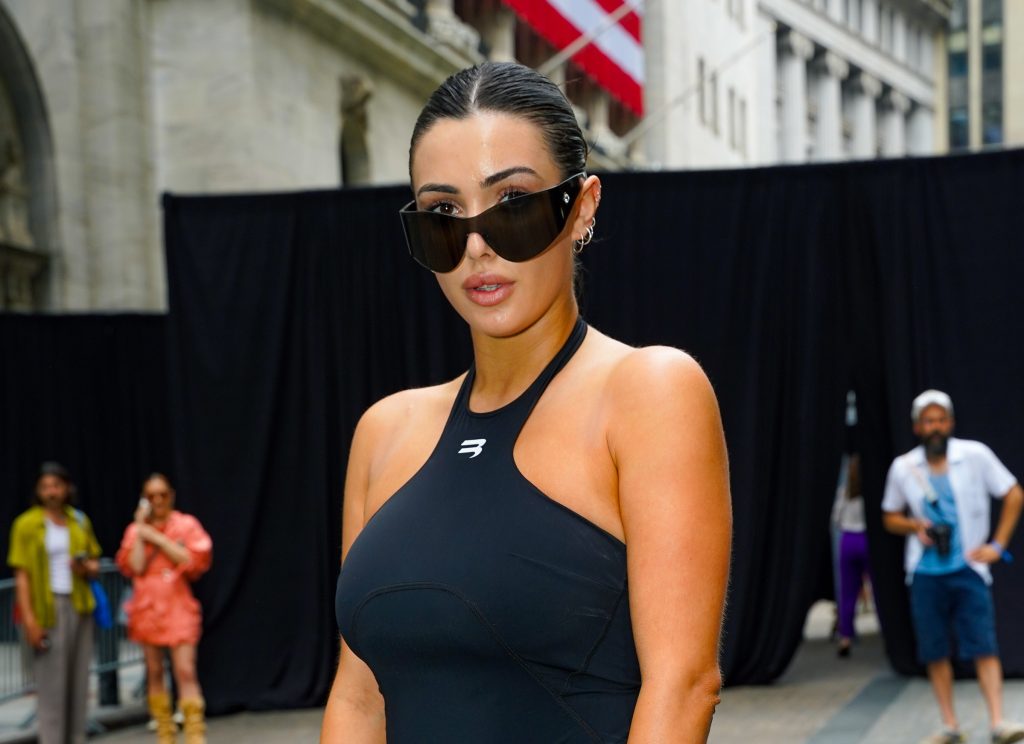Could it be that the whispers, the online searches, the hushed conversations are all chasing a phantom? The consistent absence of verifiable information surrounding alleged breast surgery for Bianca Censori strongly suggests that this is a rumor, fueled by speculation and the insatiable appetite of the internet for the salacious. The echo chamber effect, where unsubstantiated claims gain traction through repeated dissemination, seems to be at play here, leaving us with a digital void where factual evidence should reside.
The relentless pursuit of answers, the constant rephrasing of the same question ("Did bianca censori have breast surgery?") across various search engines, underscores a fundamental truth: the absence of definitive confirmation. Each "We did not find results for:" message, coupled with the suggestion to "Check spelling or type a new query," serves as a stark reminder of the boundaries of verifiable information. It's a digital brick wall, erected by the very nature of speculation, gossip, and the lack of credible sources.
The very nature of the query, focusing on a potentially private medical procedure, necessitates a high degree of evidentiary support. Medical procedures are, by their nature, shielded by privacy laws and ethical considerations. Therefore, any claim of this nature requires irrefutable proof: documentation from a qualified medical professional, corroborating statements from reliable sources, or visual evidence that stands up to scrutiny. None of this exists in the digital space surrounding the "Bianca Censori breast surgery" narrative.
The lack of credible information is not just a problem of superficial investigation; its a symptom of a larger trend. The internet, in its eagerness to fill voids, often fabricates narratives, especially when dealing with high-profile individuals. These fabricated stories, amplified by social media algorithms, can quickly take on a life of their own, further clouding the truth. We see it in politics, in business, and, as this scenario demonstrates, in the realm of celebrity and public figures. The search for Did bianca censori have breast surgery? therefore is a symptom of this wider information ecosystem rather than proof of any actual procedure.
Before delving deeper, it's crucial to remember the limitations of online searches and the dangers of misinformation. The internet is a vast repository of information, but not all information is created equal. It is essential to distinguish between credible sources and unreliable ones, fact and fiction. The lack of results from search engines isn't evidence against or for a procedure; it points to a lack of accessible and valid data that can be validated.
Focusing our attention solely on a query that yields no results blinds us to the complexities of the issue. Moreover, focusing on rumors is not only unreliable but also potentially unethical. Gossip can cause significant emotional harm to those mentioned. Any exploration into the truth of such a claim must be approached with the utmost care and respect for privacy.
Instead of focusing on a question that lacks a definitive answer, let's consider some background on the subject.
| Category | Details |
|---|---|
| Full Name | Bianca Censori |
| Nationality | Australian |
| Known For | Architect; Wife of Kanye West |
| Education | University of Melbourne |
| Profession | Architect |
| Significant Works | Details of her professional work are not readily available in the public domain. |
| Marital Status | Married to Kanye West |
| Relationship | Married to Kanye West |
| Residence | Information regarding her current residence is not publicly available. |
| Reference | Wikipedia |
The nature of online searches is to provide answers. The fact that such searches yield only "We did not find results for..." confirms the absence of publicly available information. The repetition of this message should serve as a caution rather than an invitation to speculate. It's a sign that the inquiry has entered the realm of rumor and conjecture, not verifiable fact.
The internet's tendency to focus on physical appearance is a contributing factor. Social media, with its emphasis on imagery, encourages quick judgments and opinions. People are frequently judged by appearances, leading to an increase in the spread of rumors and speculation about surgeries or cosmetic alterations.
Instead of focusing on the unsubstantiated, let us focus on the facts and how they can be confirmed:
- Consult credible sources. Instead of trusting a source you aren't sure of, search through high-quality news sites or well-known journals.
- Verify the author. Check the author's credentials and whether they're reliable. Make sure that they are qualified to talk on this subject.
- Verify the sources. Check whether the sources mentioned are trustworthy and original. Also, confirm if the evidence is original.
- Look for confirmation. Before you believe something, verify it with various sources.
The obsession with the private lives of public figures is a recurring pattern. The constant search for gossip underscores a broader issue: the intersection of celebrity, privacy, and digital scrutiny. This scrutiny, however, is not a valid method of determining truth, particularly when dealing with something as private as an operation.
Instead, it should remind us of the value of privacy, the dangers of gossip, and the significance of seeking reliable information. It prompts us to be skeptical of quick judgments and unverified claims. The digital search "Did bianca censori have breast surgery?" should serve as a reminder, not an invitation to participate in an unsubstantiated rumor.
The phrase "Check spelling or type a new query" is not a mere suggestion; it's a crucial instruction. It's a polite way of saying, what you are seeking cannot be found with the terms you have used; look elsewhere or reconsider your question. In this instance, the proper reaction is to accept the reality and look elsewhere.
This incident serves as a timely reminder of the limitations of digital inquiry and the importance of responsible information consumption. It urges us to exercise caution and to demand evidence before drawing conclusions. It serves as a reminder of the ethical responsibilities that come with discussing another person's personal matters and of respecting their privacy. In the case of Bianca Censori, as with any person, the absence of proof should be the end of the discussion.
The focus on aesthetics and body image that can result in body dysmorphia is also a consideration. When someone has to constantly live in the shadow of the media, they may develop body image issues.
The constant, repetitive search query, "Did bianca censori have breast surgery?" demonstrates the limitations of online inquiry. The absence of conclusive results shouldnt be a reason to spread rumors. Instead, it should be a sign to change direction and concentrate on real, verifiable facts.
The pursuit of this particular inquiry demonstrates the perils of focusing on unconfirmed stories in an information-saturated digital age. It underscores the need for critical thinking, responsible information consumption, and a focus on established facts rather than rumor or speculation.


